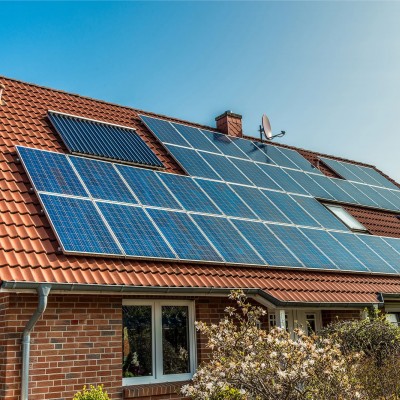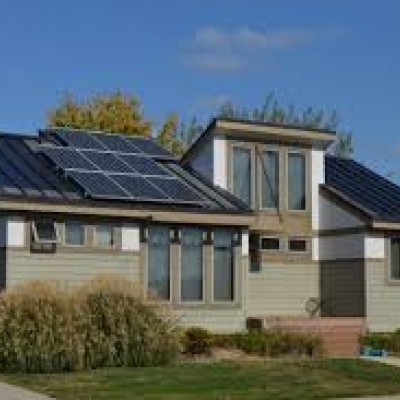For our environmental future, Gonzalez is clear choice
This opinion editorial first appeared online in CommonWealth magazine.
WHAT WOULD IT take to really tackle climate change and move the Commonwealth to a clean energy future? What would real leadership look like? Leadership that recognizes the immense cost of delay and the enormous economic opportunities of breaking our fossil fuel addiction?
We know we must act now. In the last two years, five of the strongest hurricanes ever recorded devastated Houston, Puerto Rico, Florida (twice) and North Carolina. Here in the Commonwealth, two of the strongest Nor’easters on record flooded our local cities and towns with sea ice and inundated the Seaport District, which cost $18 billion in public and private money to build. Gas explosions in Lawrence, Andover, and North Andover killed a young man and cut off heat and hot water to 10,000 families. That catastrophe forced 1,800 families from their homes, many into tent cities as temperatures dropped to freezing.
At the same time, the world’s scientists announced we have only 12 years left to take meaningful action before these types of crises spiral out of control.
Which brings us back to the question, what would real leadership look like?
Recently we had the chance to listen to the candidates for governor, Jay Gonzalez and Charlie Baker, in back-to-back appearances at the Museum of Science in Boston, talk about their plans for energy and climate change – and the differences in their sense of urgency and policy choices were stark and would lead to radically different futures for us all.
Gonzalez laid out a plan to move to 100 percent renewable electricity by 2050 while simultaneously electrifying our transportation system. Baker’s plan for 100 percent renewable electricity would take almost 50 years longer, and he argued for only nudging transportation emissions along on unspecified “reasonable time frames.”
Gonzalez squarely identified the fundamental reason slowing the Commonwealth’s adoption of renewable energy: that the Department of Public Utilities has set incentives for investor-owned utilities that are not aligned with the public interest. Baker appointed fossil fuel and utility executives to run the DPU, with predictable results. Gonzalez will replace those commissioners and then require the DPU to move decisively to align the utility business model with the public interest and transition rapidly to 100 percent renewable energy.
In contrast, Baker argued that the burden of moving to renewables should rest on customers making individual decisions, neglecting to mention that his administration introduced many obstacles for residents and business owners who want to adopt solar, including limiting the amount of solar that can be installed (“net metering caps”) and by charging solar homeowners an unpredictable and unprecedented penalty for going solar that is unique in the United States.
Under Gov. Patrick, the solar industry was the fastest growing sector of the Massachusetts economy, adding over 15,000 jobs. Unfortunately, because of the barriers placed on the solar industry under the Baker administration more than 3,500 of those jobs have been lost. Indeed, solar installations are down 64 percent just in the last year. Gonzalez pledged to accelerate our adoption of solar energy, removing the barriers imposed on solar owners by the Baker administration.
Gonzalez promised that as governor, he would ensure that Massachusetts adopted a price on carbon that would provide a transition dividend for small businesses and low-to-moderate income families to help them move to the clean energy future. Baker opposes this critical tool, even though it has been strongly supported by economists across the political spectrum as the single most effective policy for addressing climate change and was recently endorsed by the Boston Globe.
Gonzalez highlighted that he has taken the no fossil fuel money pledge for contributions to his campaign; Baker did not. Gonzalez asked how Baker could have allowed our utilities to sit on all sides of the negotiating table on massive multi-billion dollar projects, writing requests for proposals, bidding on those same RFPs, evaluating the bidders’ proposals, and then selecting themselves as the winners, even though this is like having the foxes guarding the hen house.
Baker correctly suggested that the adoption of energy storage was critical to making the transition to a renewable economy. However, his administration proposed a tiny and timid 200 MWh target while the Senate proposed a target ten times bigger — 2,000 MWh by 2025.
To put this in context, Pacific Gas and Electric has announced plans to replace three peaking natural gas power plants with 2,200 MWh of energy storage by 2020 in just one location in Monterey, California.
That means one town in California is going to double our 2025 statewide target for energy storage in just two years. And California residents will save hundreds of millions of dollars that would have been spent on expensive natural gas plants that run only a few days a year.
Gonzalez has pointed out that the solution to our overdependence on natural gas is not more natural gas. He pledged to do everything in his power to stop the expansion of new gas pipelines. In contrast, Baker spent the last three years pushing for a new $6.6 billion pipeline that would have cost every household in Massachusetts $2,700. Baker planned to fund the pipeline by imposing a tax on electric customers that was eventually declared illegal by the Supreme Judicial Court.
In the aftermath of the Merrimack Valley gas explosions, Gonzalez pointed out the DPU has had only two pipeline inspectors to oversee 21,000 miles of gas pipeline. Baker acknowledged that his administration’s new focus will be on the safety of the existing pipeline infrastructure, but refused to rule out building new pipelines.
Both candidates celebrated the recent offshore wind procurements that will provide 6 percent more renewable electricity for the Commonwealth, but Gonzalez suggested we should set our sights higher – aiming for offshore wind to deliver at least 24 percent of Massachusetts’ electricity demand. Gonzalez reminded us that it was his leadership in the Patrick administration that secured the $100 million financing five years ago required to build the Marine Commerce Terminal and other infrastructure needed to launch these offshore wind projects.
Gonzalez highlighted this as just one example of the many near term benefits of accelerating our transition to a clean energy future, including improving health, lowering health care costs, creating jobs, cleaner air, cleaner water, and keeping $22 billion a year currently leaving our state every year to pay for fossil fuels in our own wallets. Baker said the goal of moving to a clean energy future was too complicated to make rapid progress.
We know that the costs of delay and of protecting the status quo are already staggering and will become irreversible without rapid action. Remember the world’s leading authorities on climate change at the Intergovernmental Panel on Climate Change said, “The next few years are probably the most important in our history.”
We also know that the potential for sustainable and widely shared prosperity is enormous. A recent report showed we can achieve $26 trillion (yes, trillion with a “t”) in economic benefits by 2030 by making a rapid transition to a clean energy economy.
What kind of world do you want to live in? Clean or dirty? Safe or dangerous? Healthy or diseased? Prosperous or destitute? We choose clean, safe, healthy, and prosperous.
Our Commonwealth can’t afford another four years of delay designed to protect the status quo fossil fuel interests. Charlie Baker had a full term to move swiftly and decisively. He did not do so – and so now we must pick a new governor who will demonstrate real leadership at this critical time. That’s why we are voting for Jay Gonzalez – and we urge you to do the same.


